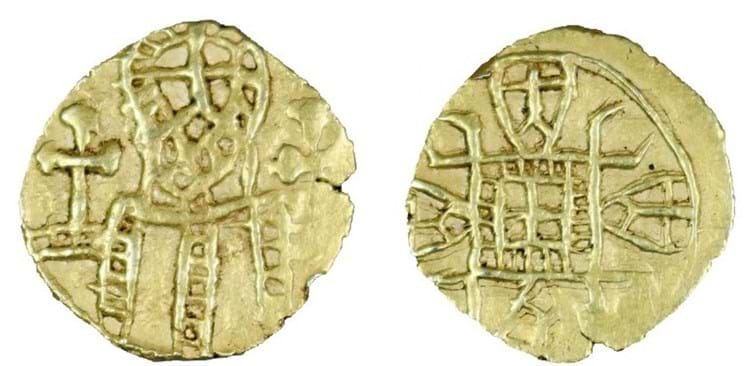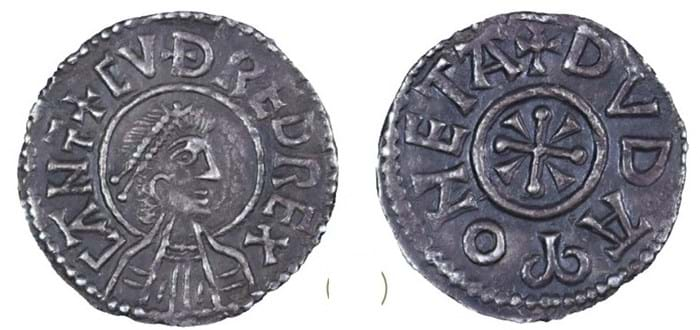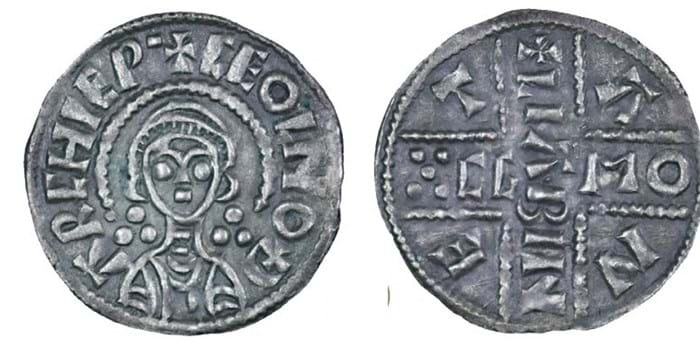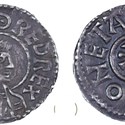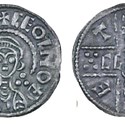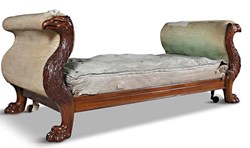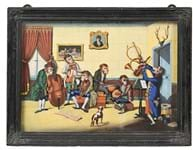The coins had been discovered only when executors found documents in John Cross’ park home (mobile home or caravan) near the Kent city which indicated they had become so extensive and valuable that he held them in the bank for safekeeping.
The records showed Cross, who died last year, amassed his collection over a 20 to 30-year period, spending particularly freely between 2016-17. The saleroom described the 85-lot group as being among the most important collection of Anglo-Saxon coins outside any UK museum.
A spokesman for the executors said: “On inspecting the gentleman’s personal items, it appears he was very much into researching Anglo Saxon and Medieval history.
“He had a particular fascination for coinage from the period and he was also interested in early buildings and churches.
“He attended lectures and even held a certificate in archaeological excavation, for which he qualified back in 2010 when he was in his sixties.”
The Thrysma sold for £17,500 against an estimate of £8000-12,000.
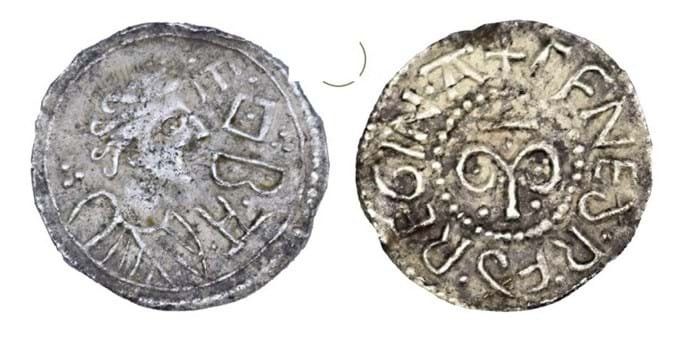
Silver penny minted in 757-796 showing Cynethryth, queen of the Mercians and wife of King Offa – £7400 at The Canterbury Auction Galleries.
A silver penny minted in 757-796 showing Cynethryth, queen of the Mercians and wife of King Offa, sold for £7400 (guide £1000-1500). Cynethryth is the only Anglo-Saxon queen known to have an image on a coin.
Estimated at £1800-2000, a Cuthred, King of Kent (798-807) silver penny took £5200, and a Ceolnoth, Archbishop of Canterbury (833-870) silver penny sold for £5000 (est: £1000-1500).
The Cross collection realised £185,000 against pre-sale hopes of £75,000. The proceeds will go to The British Numismatic Society and Friends of Kent Churches, as was Cross’ wish.


